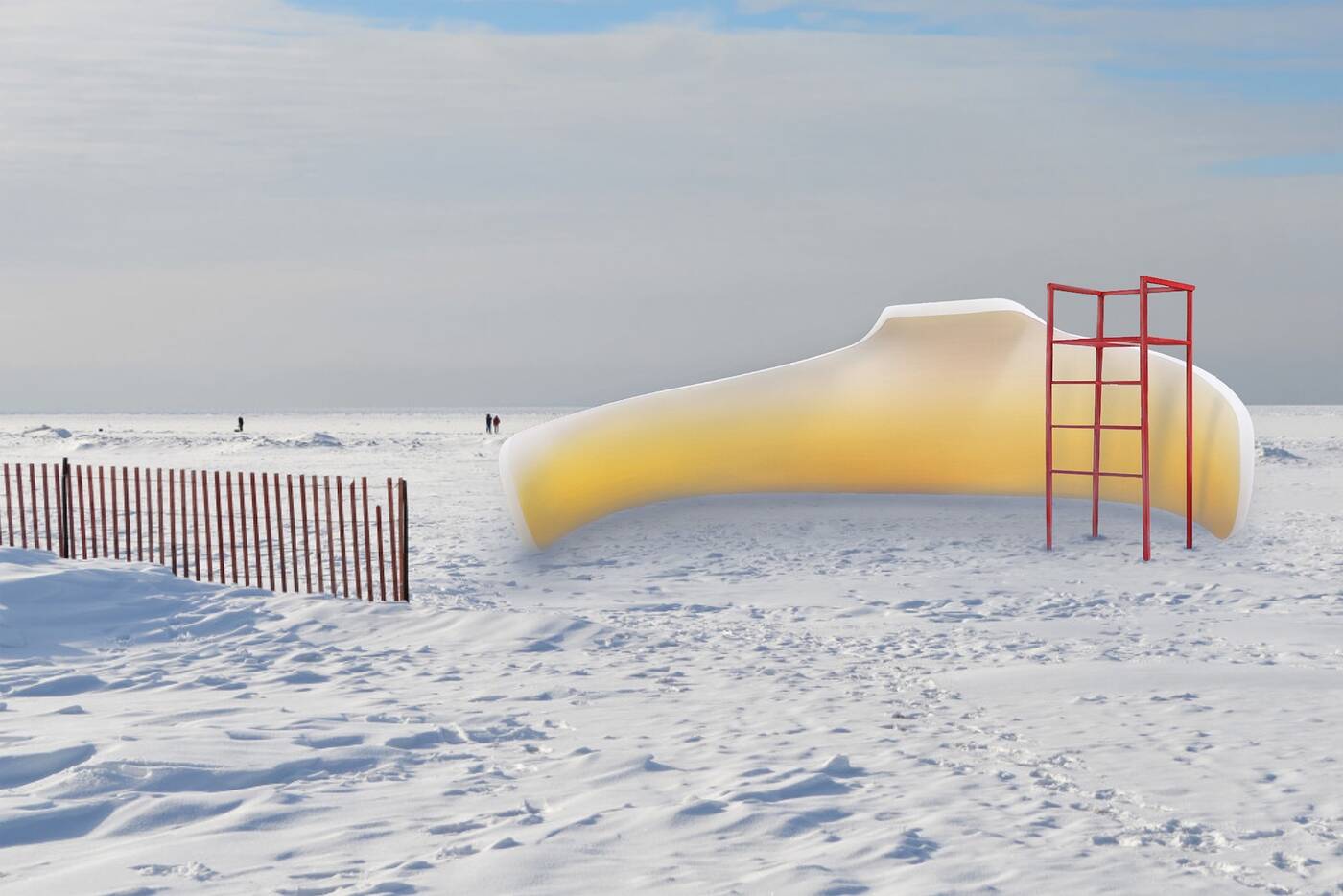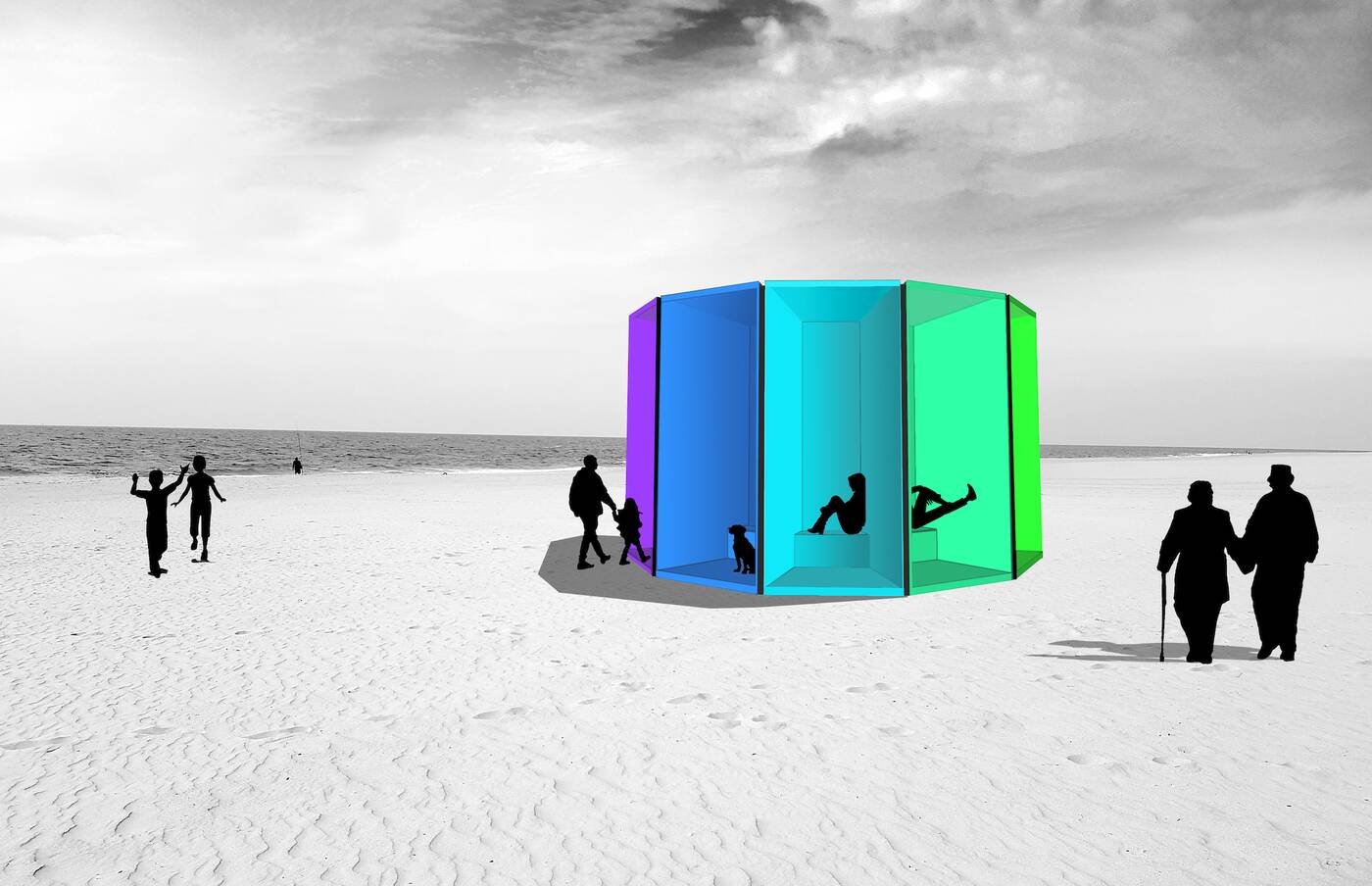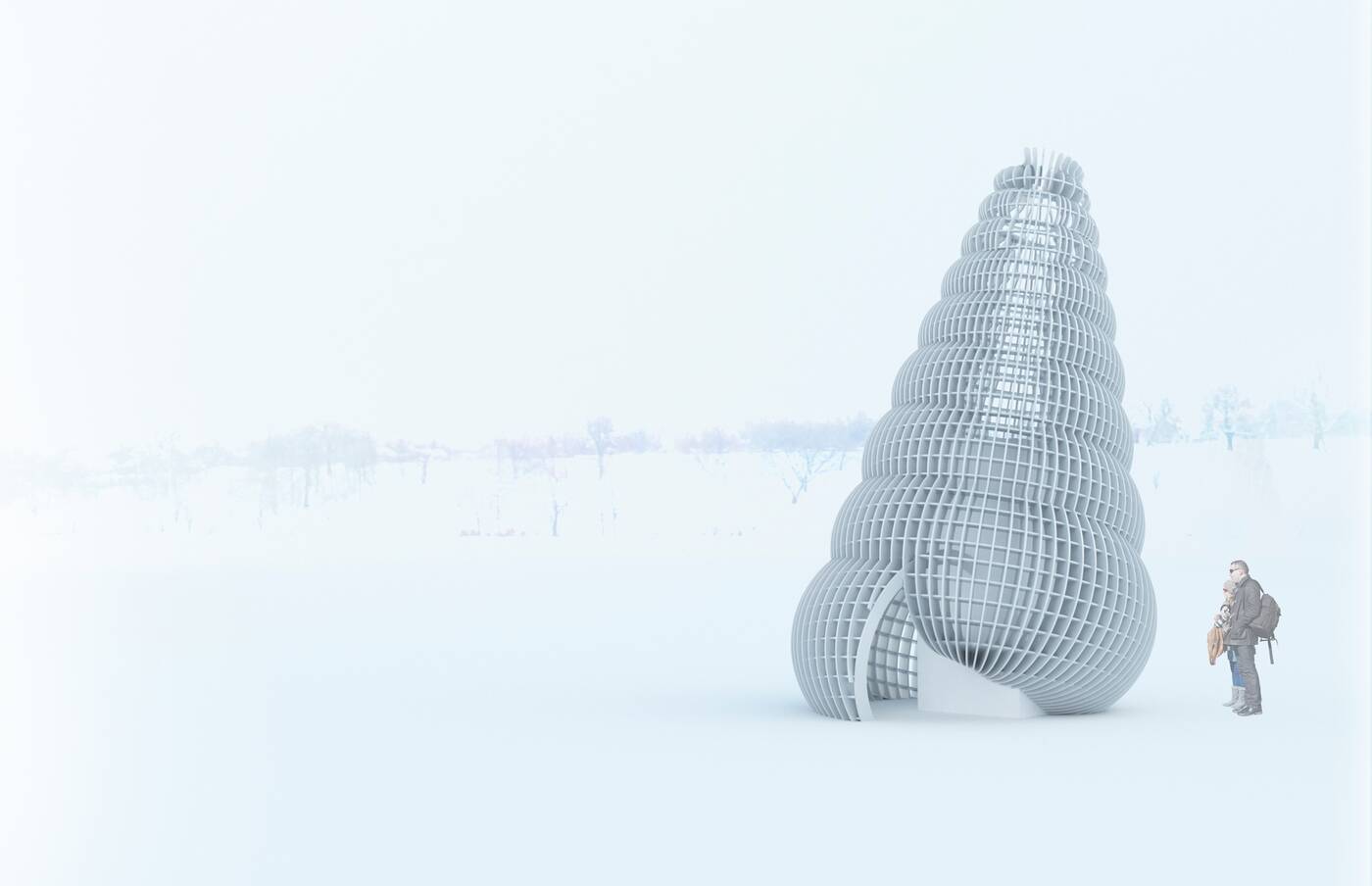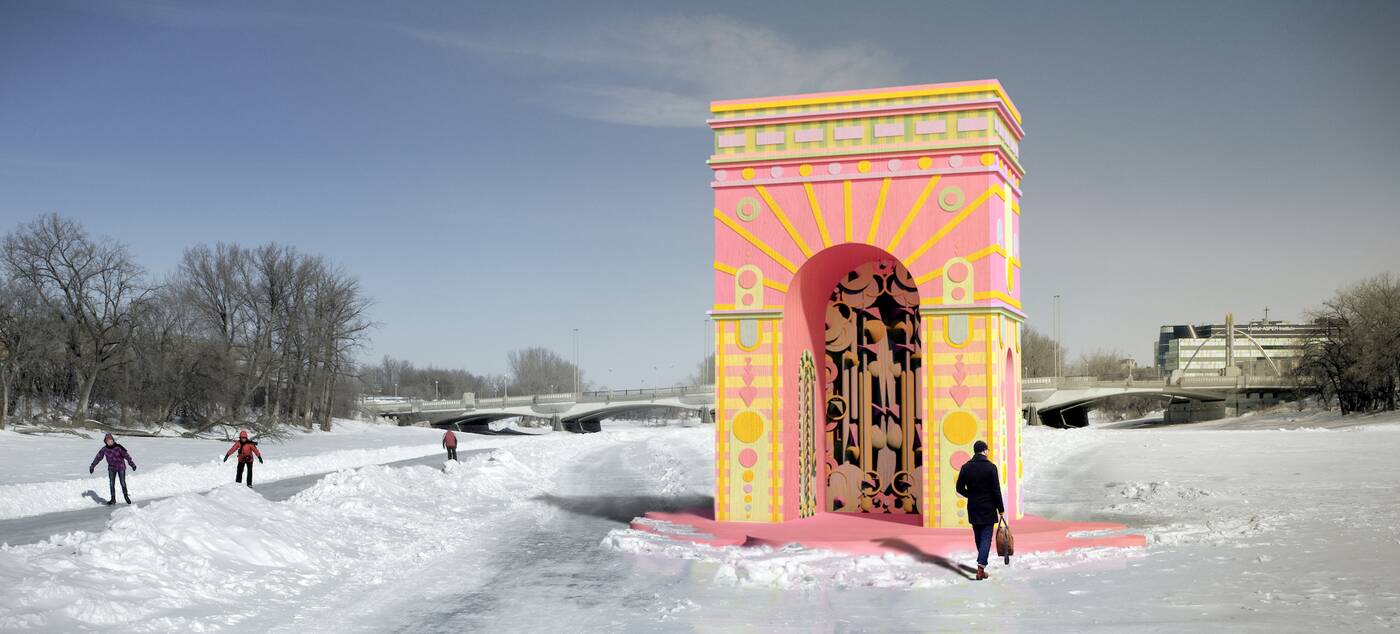
Toronto's annual Winter Stations exhibition was slated to bring unique and eye-catching public art to the city's waterfront this winter as it does every year, but COVID-19 restrictions prevented the festival from going ahead.
Now, in an effort to bring some version of the festival to the public in 2021, Winter Stations has announced a new, modified spring schedule that includes stopping in different locations for a special and warmer edition of the exhibition.
"The Beach will always be our home and we have every intention of returning on Family Day in 2022," the organizers said in a statement.

Embrace by Colin Laplante, Grace Im, Ziyu Li, Brayden Popke, Nicole Ruiz, Reem Yunis, Bachelor of Craft and Design Program, Sheridan College.
The new schedule for Spring Stations includes an exhibition in the Distillery District from May 6 to late June, an installation at 33 Parliament St. on those same dates and another in the Beach Village BIA in July, with exact dates and locations to be announced soon.
The festival organizers says these dates were chosen to align with the end of the stay-at-home order and may be adjusted if the order is extended.

HROBBER by Heidundgriess - Alexandra Grieß and Jorel Heid, Germany.
"We recognize the ever-increasing importance of outdoor settings and look forward to offering a fun and safe activity for Torontonians to enjoy," the organizers said. "We encourage everyone who visits the stations to do so on their own, or with members of their own household, and to practice social distancing while at a station."
Winning designs for this year's exhibition were selected by a jury from a record-breaking 400+ submissions from around the world. The theme of the seventh annual festival, Refuge, asked designers to "reflect on the ongoing pandemic and consider what refuge means to each of us: a shelter, a place of comfort and security, a sanctuary."

The Epitonium by M. Yengiabad - Shahed M. Yengiabad, Elaheh M. Yengiabad, Alemeh M. Yengiabad and Mojtaba Anoosha, Iran.
Winners include a piece called "ARc de Blob," a colourful arch created by Aleksandra Belitskaja, Ben James and Shaun McCallum from Austria and the U.K., as well as "From Small Beginnings" by U.K. artists Jack Leather and Charlie Leather.
The latter is made up of an entire tiny forest of seedlings planted on 15 wooden shelves and provides both seating and standing space for spectators to seek refuge.

ARc de Blob by Aleksandra Belitskaja, Ben James and Shaun McCallum, Austria/UK.
Visitors will also get to see "THROBBER," a rainbow neon piece made up of 10 colourful rooms and created by Alexandra Grieß and Jorel Heid from Germany, "The Epitonium," which was created by a group of Iranian artists aiming to provide physical shelter with architecture inspired by nature, and "Embrace"— created by a group of artists from the Bachelor of Craft and Design program at Sheridan College.






0 comments:
Post a Comment